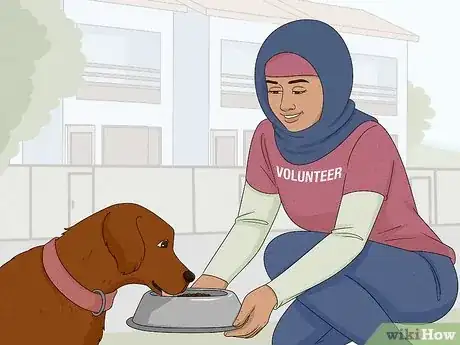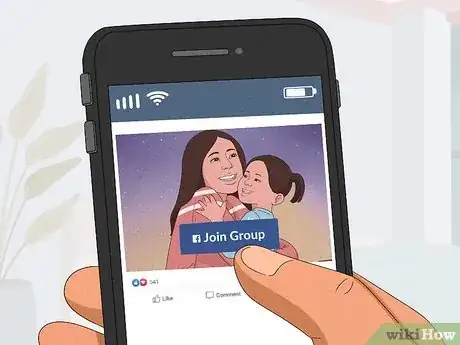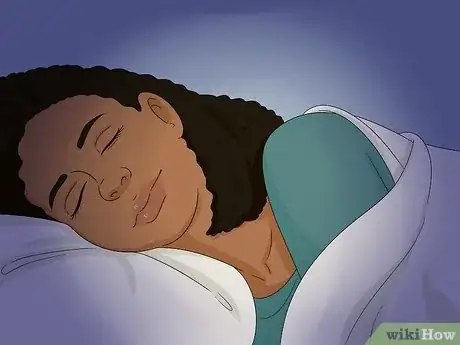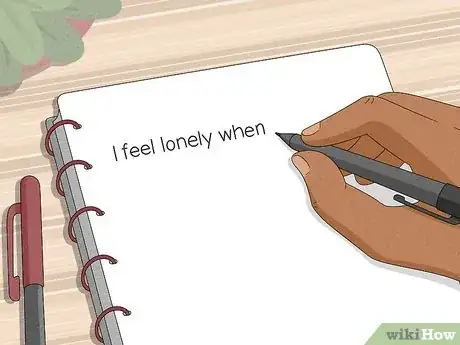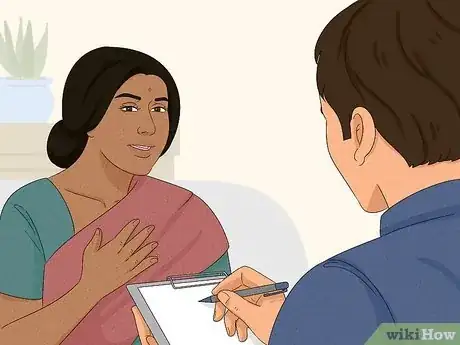This article was co-authored by Chloe Carmichael, PhD. Chloe Carmichael, PhD is a Licensed Clinical Psychologist who runs a private practice in New York City. With over a decade of psychological consulting experience, Dr. Chloe specializes in relationship issues, stress management, self esteem, and career coaching. She has also instructed undergraduate courses at Long Island University and has served as adjunct faculty at the City University of New York. Dr. Chloe completed her PhD in Clinical Psychology at Long Island University in Brooklyn, New York and her clinical training at Lenox Hill Hospital and Kings County Hospital. She is accredited by the American Psychological Association and is the author of “Nervous Energy: Harness the Power of Your Anxiety” and “Dr. Chloe's 10 Commandments of Dating.”
There are 12 references cited in this article, which can be found at the bottom of the page.
wikiHow marks an article as reader-approved once it receives enough positive feedback. This article has 39 testimonials from our readers, earning it our reader-approved status.
This article has been viewed 3,297,712 times.
In a world so big, it can be easy to feel alone. Loneliness can happen to anyone at any time, but even so, blue feelings are never fun. Thankfully, there are ways to cope and deal with loneliness, and they’re probably simpler than you may think. We’ve rounded up the best ways to help you start feeling like yourself again (plus explanations for why you may be lonely). Now, everyone is different, so all of these tricks may not work for you, but it doesn’t hurt to give them a try to see what does!
Things You Should Know
- Joining clubs, volunteering, and chatting with people online helps you put yourself out there and make friends—helping you say “bye-bye” to loneliness.
- Keep yourself busy with things you love and practice self-care to learn to love solitude.
- Check in with a therapist if you’re feeling hopeless, unmotivated, and lonely, as these could be signs of depression.
Steps
References
- ↑ Chloe Carmichael, PhD. Licensed Clinical Psychologist. Expert Interview. 29 May 2019.
- ↑ http://www.helpguide.org/articles/relationships/how-to-make-friends.htm
- ↑ Chloe Carmichael, PhD. Licensed Clinical Psychologist. Expert Interview. 29 May 2019.
- ↑ https://www.nhs.uk/mental-health/feelings-symptoms-behaviours/feelings-and-symptoms/feeling-lonely/
- ↑ http://www.helpguide.org/articles/relationships/how-to-make-friends.htm
- ↑ https://www.cdc.gov/howrightnow/resources/coping-with-loneliness/index.html
- ↑ https://www.cdc.gov/howrightnow/resources/coping-with-loneliness/index.html
- ↑ https://www.mayoclinic.org/diseases-conditions/depression/in-depth/depression-and-exercise/art-20046495
- ↑ https://www.mayoclinic.org/healthy-lifestyle/adult-health/expert-answers/how-many-hours-of-sleep-are-enough/faq-20057898
- ↑ https://www.psychologytoday.com/blog/pura-vida/201401/meditation-medicine-loneliness
- ↑ https://www.nhs.uk/every-mind-matters/coronavirus/coping-with-loneliness-during-coronavirus/
- ↑ https://www.nhs.uk/every-mind-matters/coronavirus/coping-with-loneliness-during-coronavirus/
- ↑ https://www.helpguide.org/articles/mental-health/mood-boosting-power-of-dogs.htm
- ↑ https://bmcpsychiatry.biomedcentral.com/articles/10.1186/s12888-020-02818-3
- ↑ https://www.helpguide.org/articles/depression/depression-symptoms-and-warning-signs.htm
- ↑ https://www.nhs.uk/mental-health/feelings-symptoms-behaviours/feelings-and-symptoms/feeling-lonely/
- ↑ https://time.com/5548386/feeling-lonely-in-relationship/
- ↑ Chloe Carmichael, PhD. Licensed Clinical Psychologist. Expert Interview. 29 May 2019.
About This Article
To deal with loneliness, try exploring new hobbies and activities, such as taking a class or volunteering within your community. If you're anxious around other people, try doing things by yourself, like going out to dinner or seeing a movie. Alternatively, join an online community to share your thoughts and ask questions to those who are also dealing with loneliness. You can also deepen your relationships with people who are already in your life, like your family and close friends. To learn how to identify the reasons for your loneliness, keep reading!
